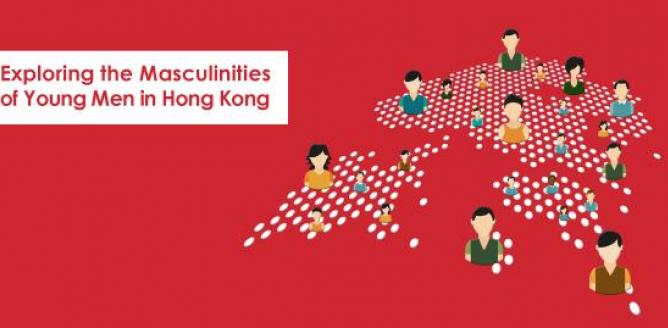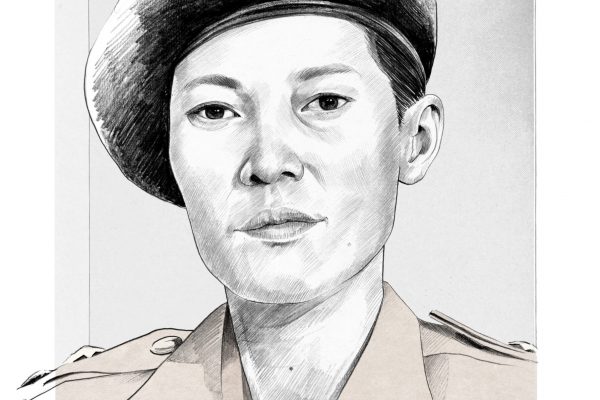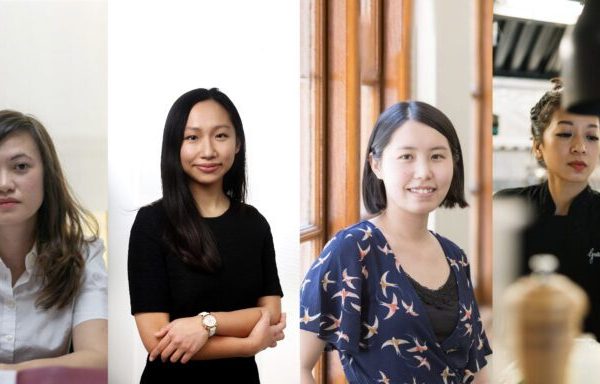Last Word: How Ellen Li pushed gender equality forward in Hong Kong
*Co-written by Jamie Ha
“Something dramatic, dynamic, and farsighted.”
That is how Ellen Li began her remarks on the need to improve equal rights for women and subvert conservative Chinese traditions in a 1968 Legislative Council debate in Hong Kong.
She was the only woman to speak in the Council, and the first to occupy a seat in the chamber.
Surrounded by a male audience, Li pressed onwards, listing off possibilities for change. She was unfazed by the contrary reactions around her. Eager for change, she demanded action.
This wasn’t the first time
Before 1966, the year she was appointed to the Legislative Council, Li had already made an unapologetic name for herself as one of the strongest female voices in Hong Kong.
In 1938 she made strides by founding the Hong Kong Chinese Women’s Club. A decade later, she was named the first woman Justice of the Peace. She established the Hong Kong Family Planning Association in 1951 and, in 1964, became the first Chinese woman on the Urban Council.
Five years later in 1969, she became the first woman to receive an Honorary Doctor of Laws by the University of Hong Kong. In 1974 she became the first female to receive Commander of the Order of the British Empire in Hong Kong – all this while also being a wife, mother and grandmother.
In 1999, she was inducted into the Hall of Fame of the International Women’s Forum. By all measurements, Li led a remarkable life. One that shaped many others that followed.
On the frontline
Born Tsao Sau-kuan on 22 July 1908 in Ho Chi Minh City – then Saigon – into a wealthy Fujianese family from Xiamen, Li was educated at St. Stephen’s Girls’ College in Hong Kong. She later moved to mainland China, graduating in business administration from the University of Shanghai as one of the first women in that faculty. In 1934, she moved back to Hong Kong, and began her career in banking as an English secretary – a position then filled mostly by men.
Two years later, she married her life-long companion, Li Shu Pui, one of the city’s most illustrious doctors and a pivotal figure in the establishment of the Hong Kong Sanatorium & Hospital. They were married for 69 years with two sons and one daughter. Together, they grew into a widely respected power couple.
Li’s progressive outlook shone from the very beginning of her professional life, and her passion drove her to leave banking and pursue a career in social services. Her focus from the start was on women. Social progress for her gender, she believed, could be best achieved by working within the existing system in place in Hong Kong.
“Slow and steady progress is more effective here,” she advised during an interview in 1976. “Women in Hong Kong must fight along with the men for social progress and reform, fighting for amendments and new legislation.”
In 1938, she established the Hong Kong Chinese Women’s Club to support the anti-Japanese war efforts on the frontline. The association helped refugees and wounded soldiers and, after the end of the war, provided means and training to thousands of female migrants in Hong Kong.
It also campaigned for the equality of women in the workplace, in wages, in marriage and inheritance, and for stricter regulation of prostitution and gambling. The club went on to set up old people’s homes, a children’s centre, primary and secondary schools, and four free night schools for women with limited formal education.
If all mothers gave their daughters the same chances as their sons, there would be no more problems regarding the status of women.
Ellen Li
It was only the first step on Li’s agenda for equal rights. The funding of the Family Planning Association, which promoted family planning and raising living standards of the middle and lower strata of society was another major accomplishment for the social advocate – and the city at large.
But her greatest achievement was perhaps the passing of the 1971 Marriage (Amendment) Bill, which made polygamy illegal in Hong Kong. It was the culmination of a 20-year-long campaign for Li, and an uphill battle against a practice – that of concubinage – dating back to the Great Qing Legal Code.
The abolition of the practice was nothing short of a historical milestone. Today, it also frames Li as a woman very much aware of the potential held by Hong Kong in terms of socio-cultural progress at the time.
“Transnational business contacts, a colonial structure shaken by war and revolution, and a new industrial society in the making, provided Li the space to make a life that was fulfilling and meaningful,” commented Helen F. Siu in her 2010 book Merchants’ Daughters: Women, Commerce and Regional Culture in South China, a study on gender theories in the country.
“What she enjoyed could have been rare opportunities in an uncertain time, but postwar Hong Kong has had a liberalised and expanded economy that has allowed rapid social mobility for an entire generation.”
A natural born fighter
Li’s resilience and unwavering approach to gender issues made her a true pioneer for women’s rights in Hong Kong. But she was also a fighter in her private life. Diagnosed with breast cancer in 1962, she pushed back against the illness, more concerned about working for her social causes than her diagnosis.
“The ten years between 1964 and 1974 were the busiest and most fruitful years of my life … I was so absorbed in my work that I never gave my health a thought. I was sure God was with me. He gave me back my life, and it must have been for a good reason. My fight for women’s rights and free education was what He wanted me to do, and I succeeded within the 10-year period,” she wrote in her autobiography Life’s Journey – An Autobiography, published in 1993.
Her story didn’t end there. Li’s appointment to the Urban Council first and Legislative Council in the 1960s not only allowed her to be an instrumental figure for equality and change, but also paved the way for the generations of women who came after.
She died at 96 years old in 2005 – the same year the Dr. Ellen Li Charitable Foundation was established at the Hong Kong Sanatorium & Hospital in her honour. Still active today, the foundation is dedicated to fostering the development of medicine in teaching, patient care, academic research and health education, as well as finding ways to combat breast cancer, the third leading cause of cancer deaths among women in Hong Kong.
“If all mothers gave their daughters the same chances as their sons, there would be no more problems regarding the status of women,” were Li’s closing words in a 1976 interview. “Prejudice exists in the mind, so if people are treated the same within the family, they will not grow up to think of men and women as being different.”




